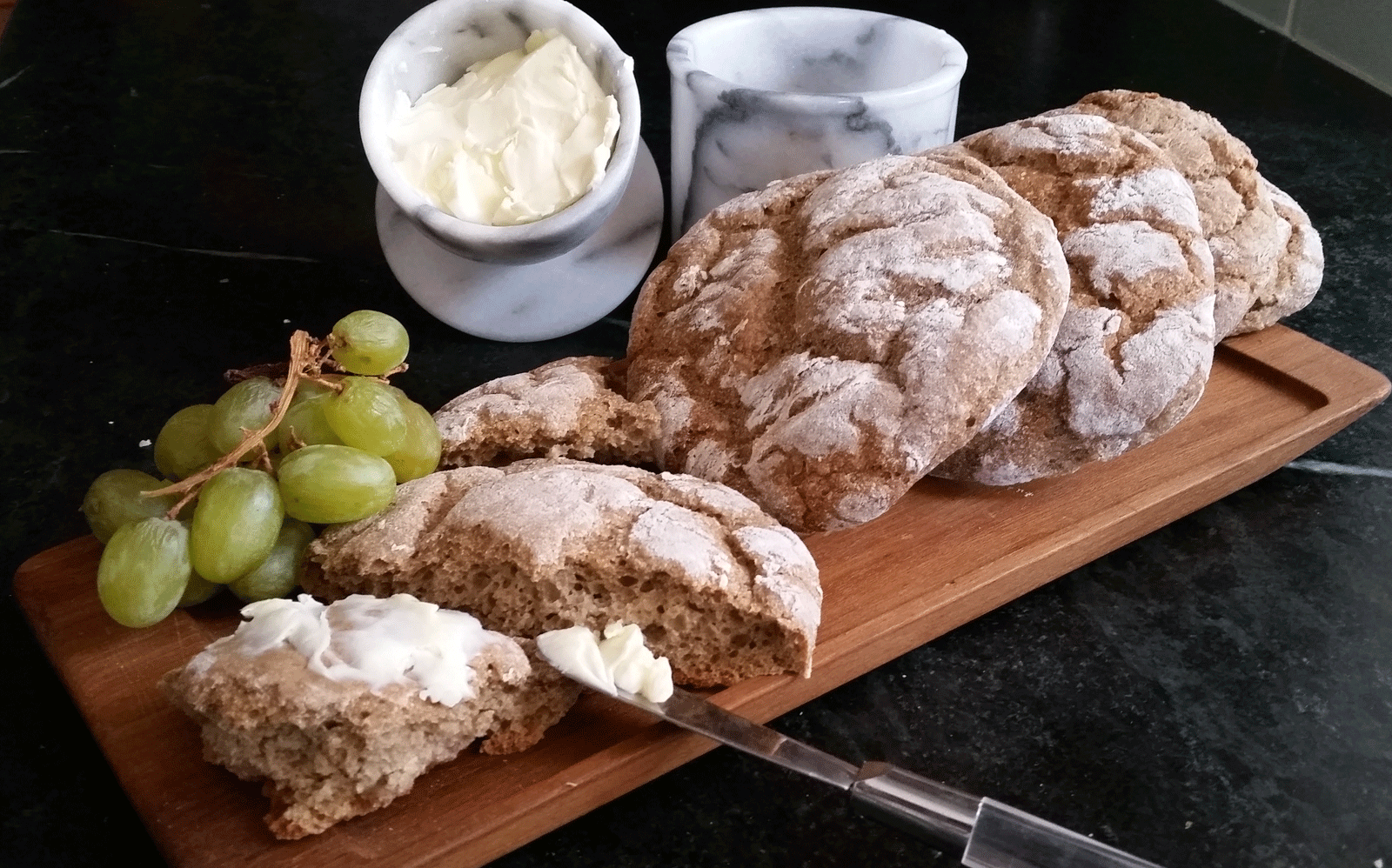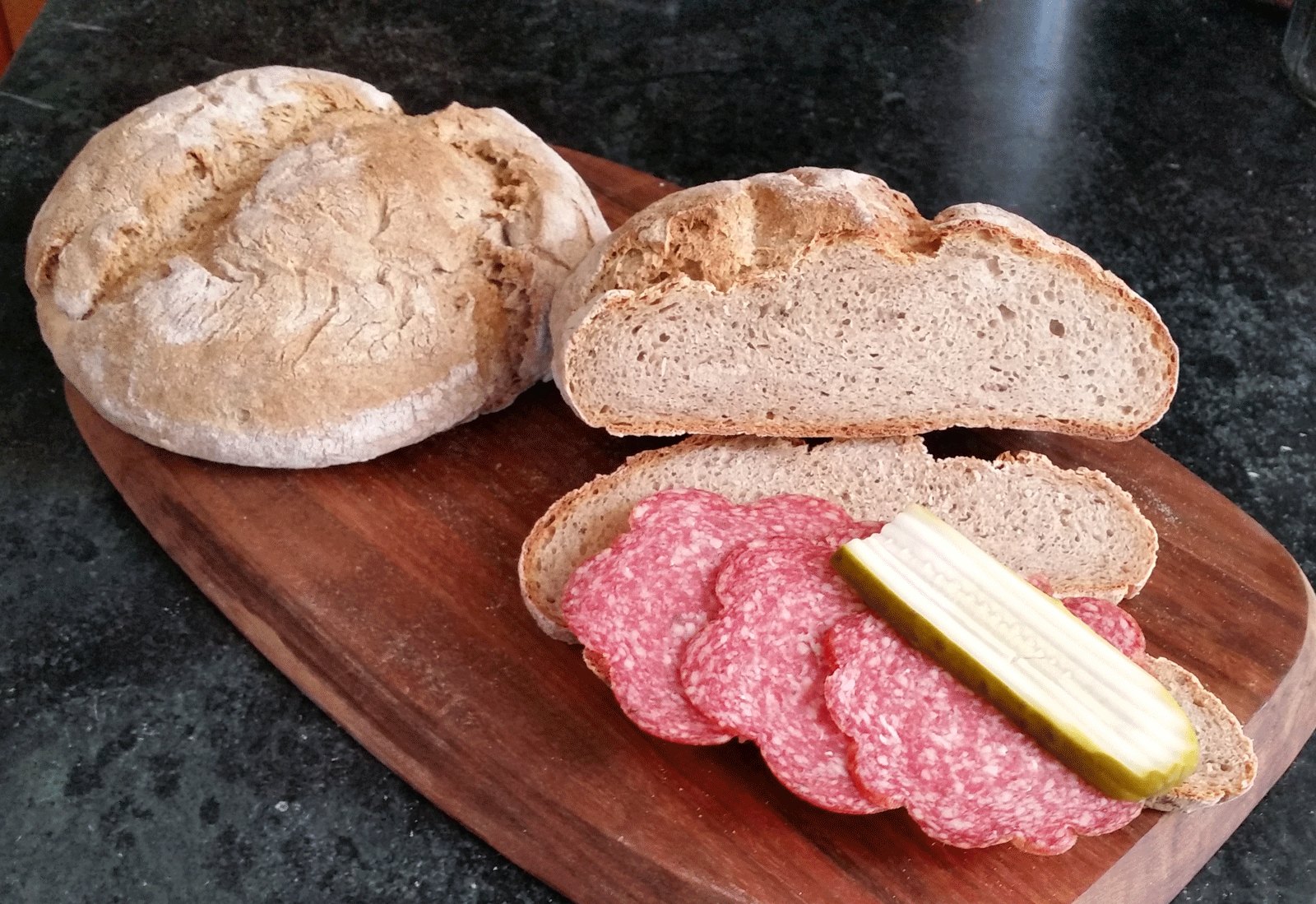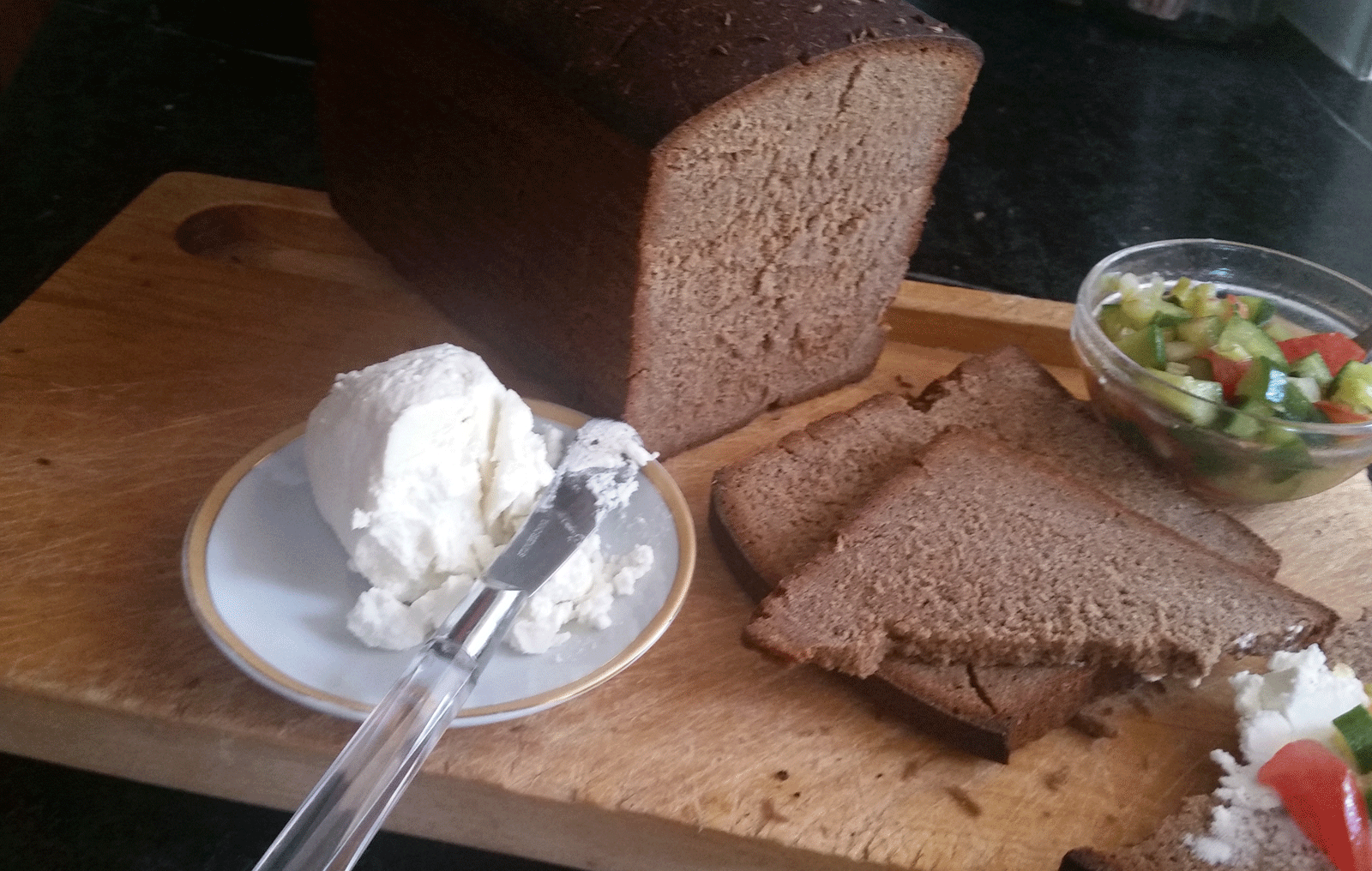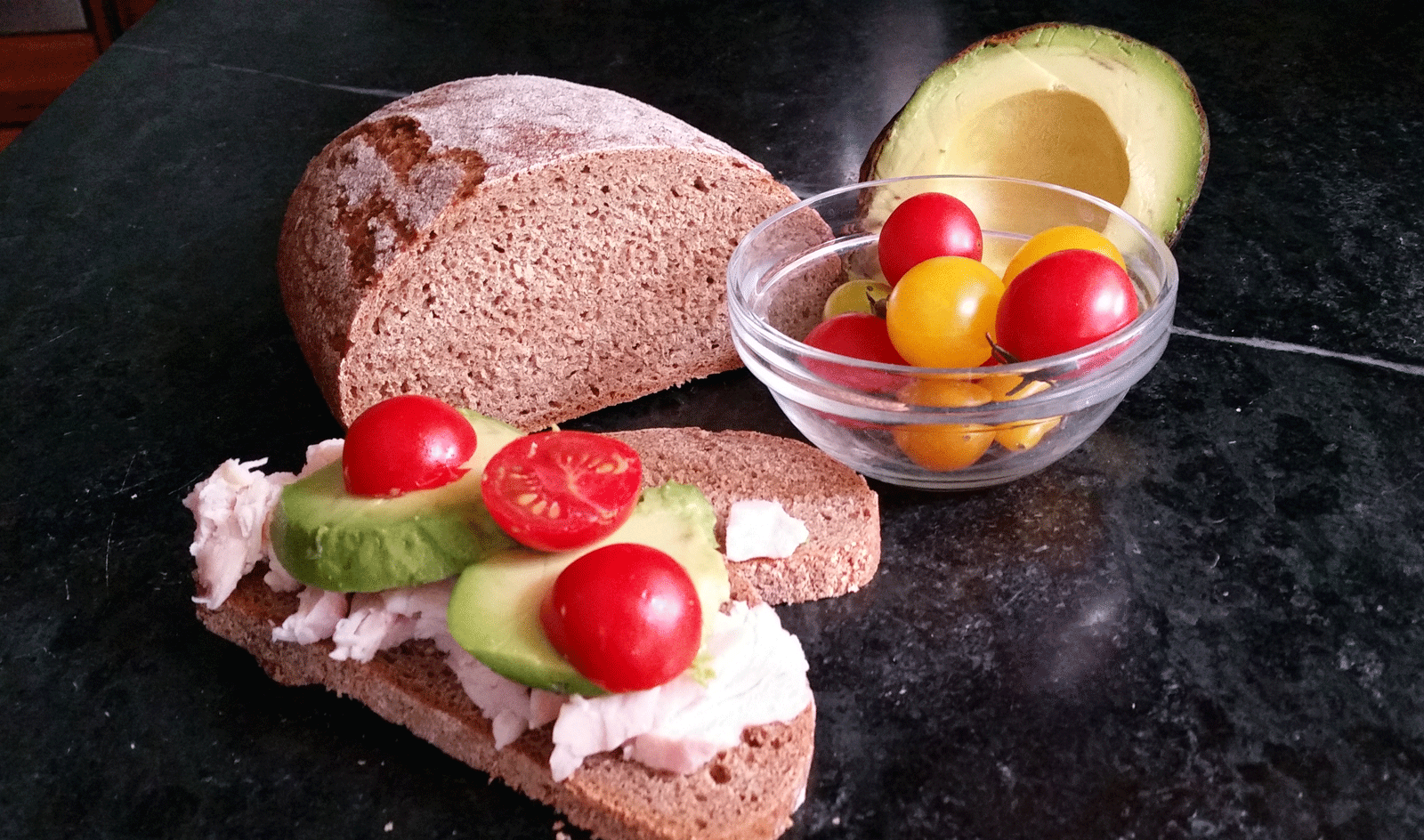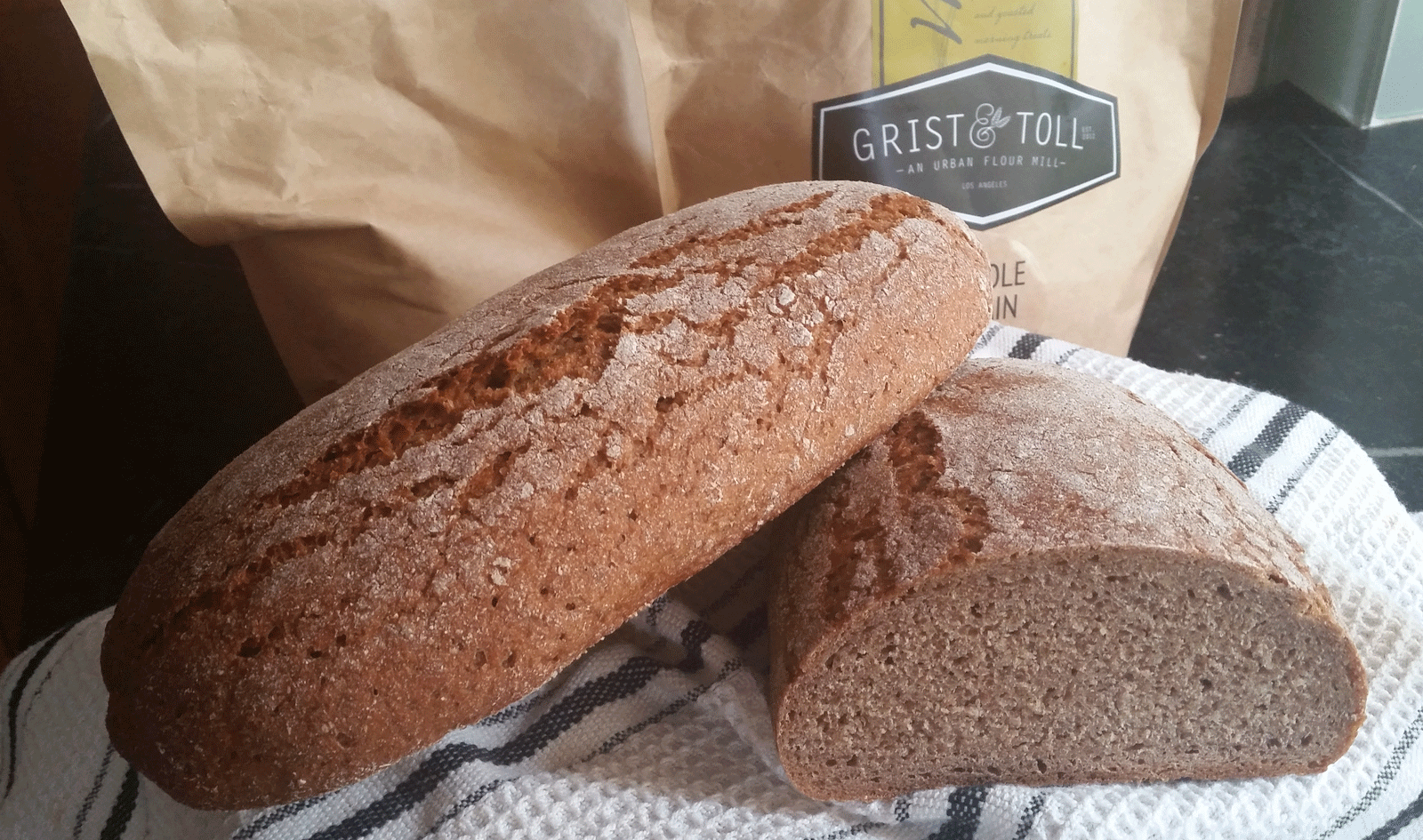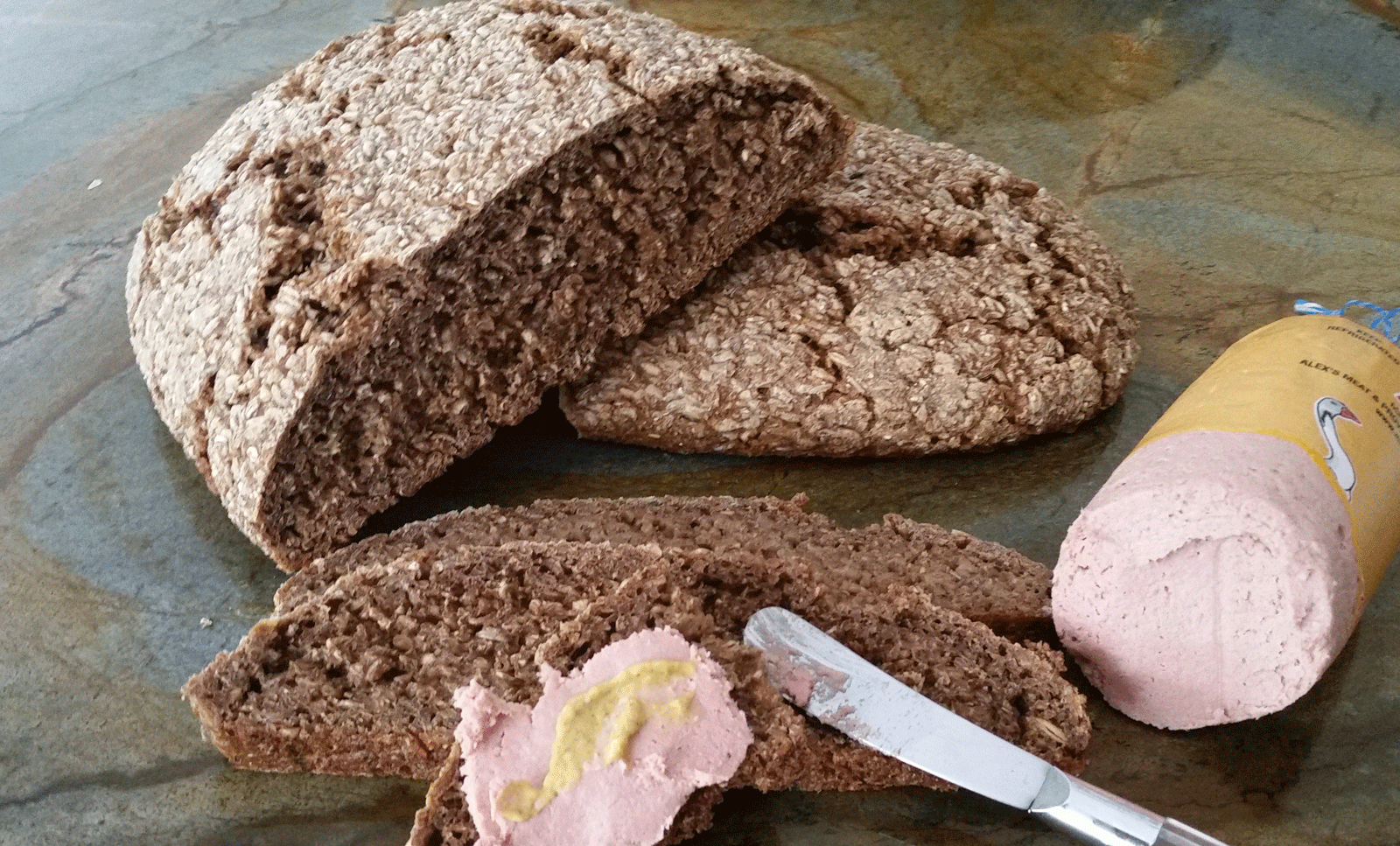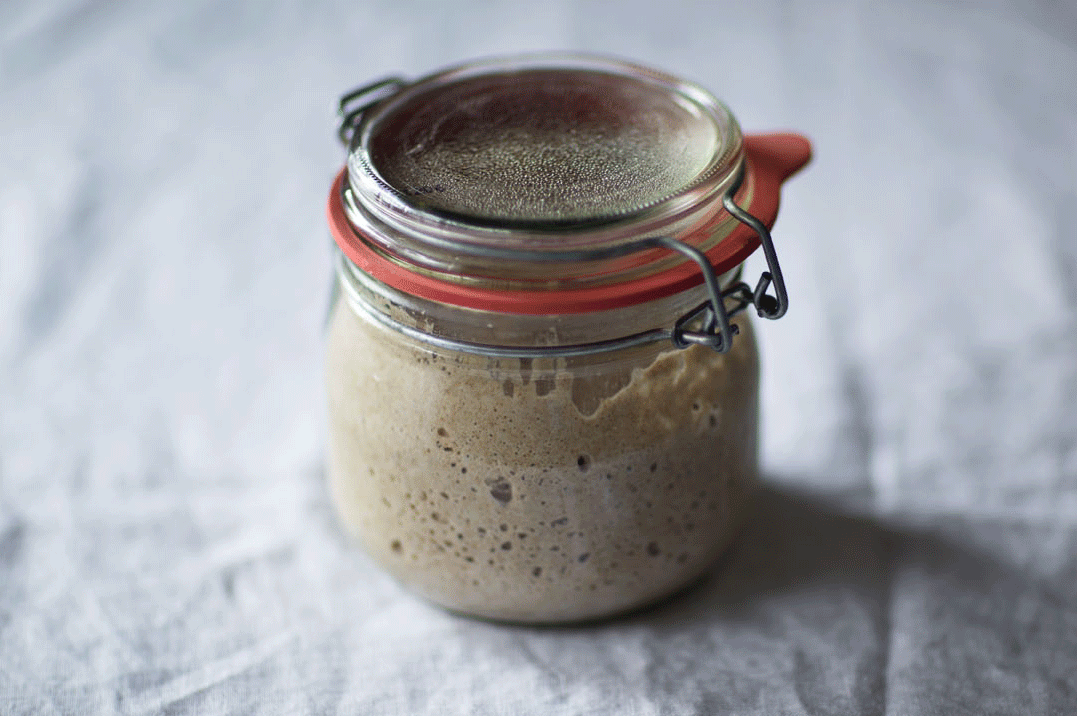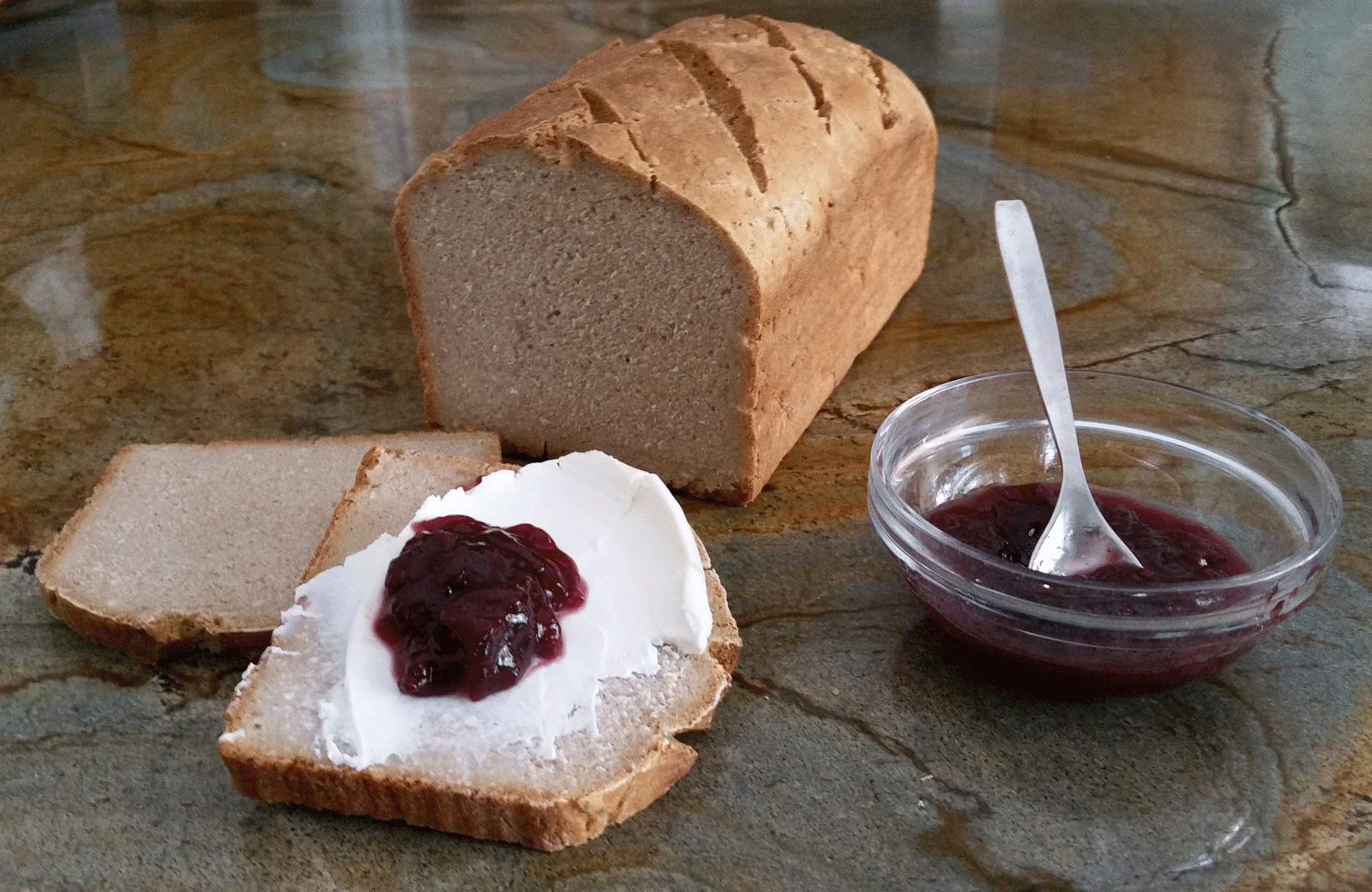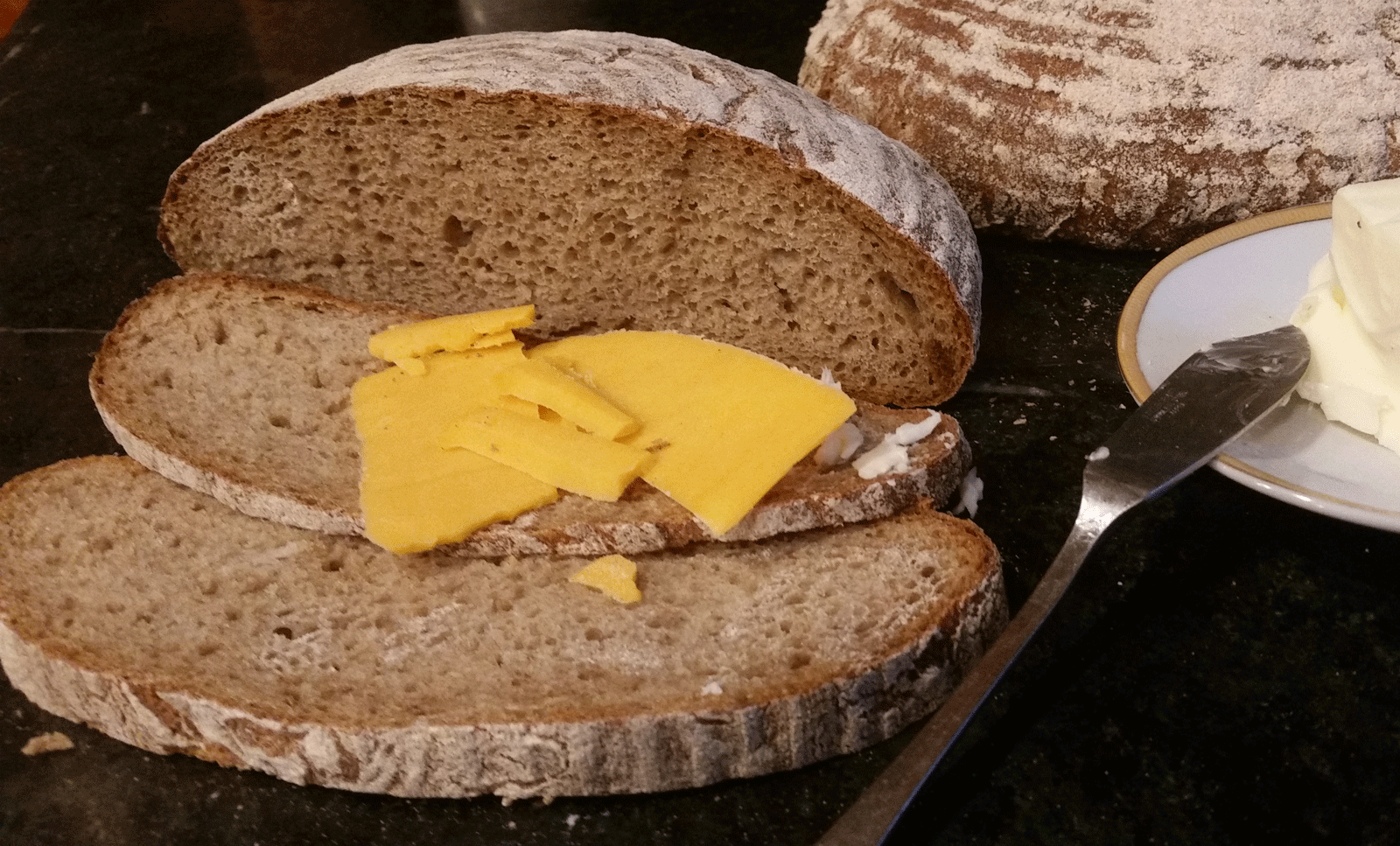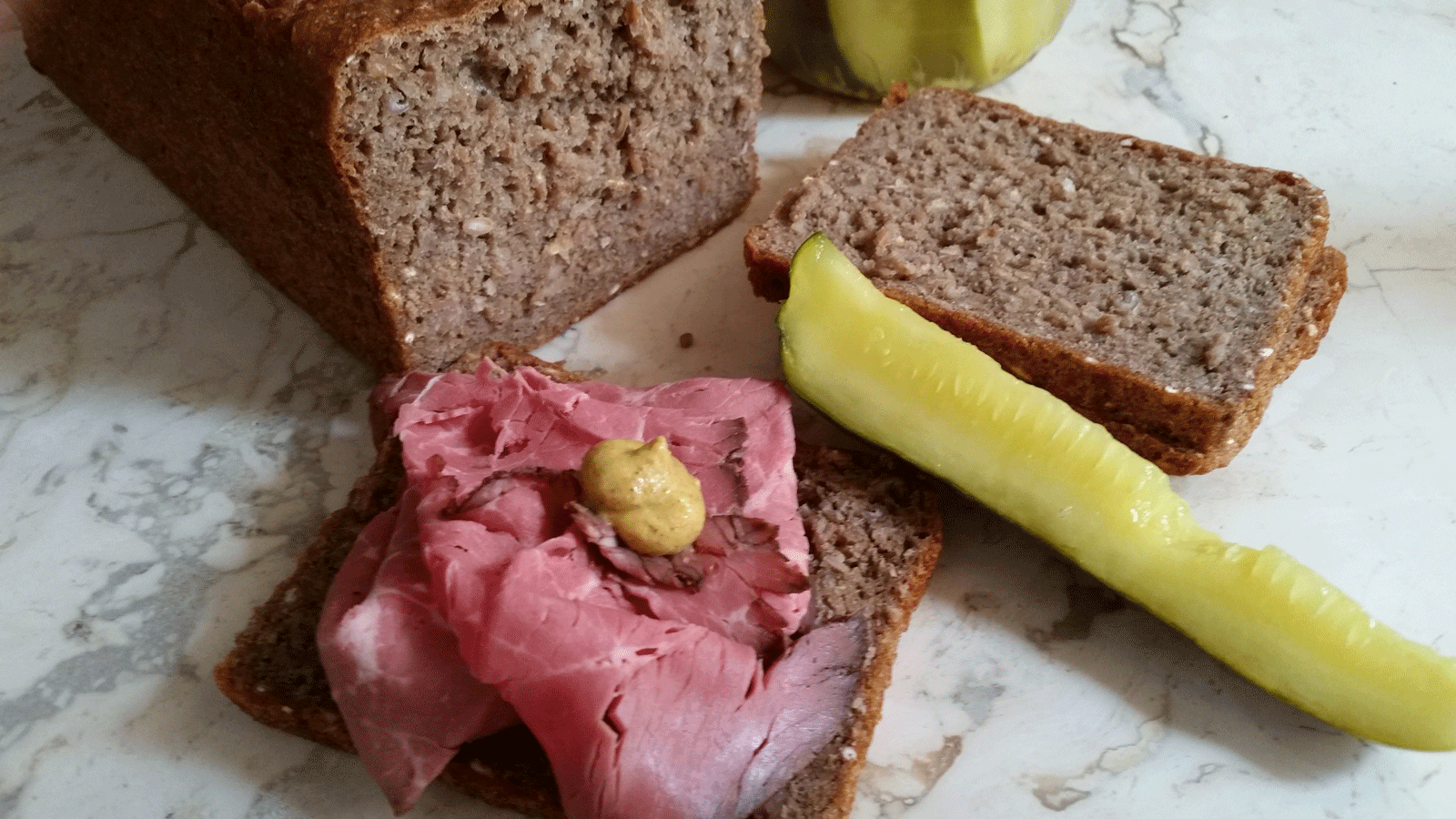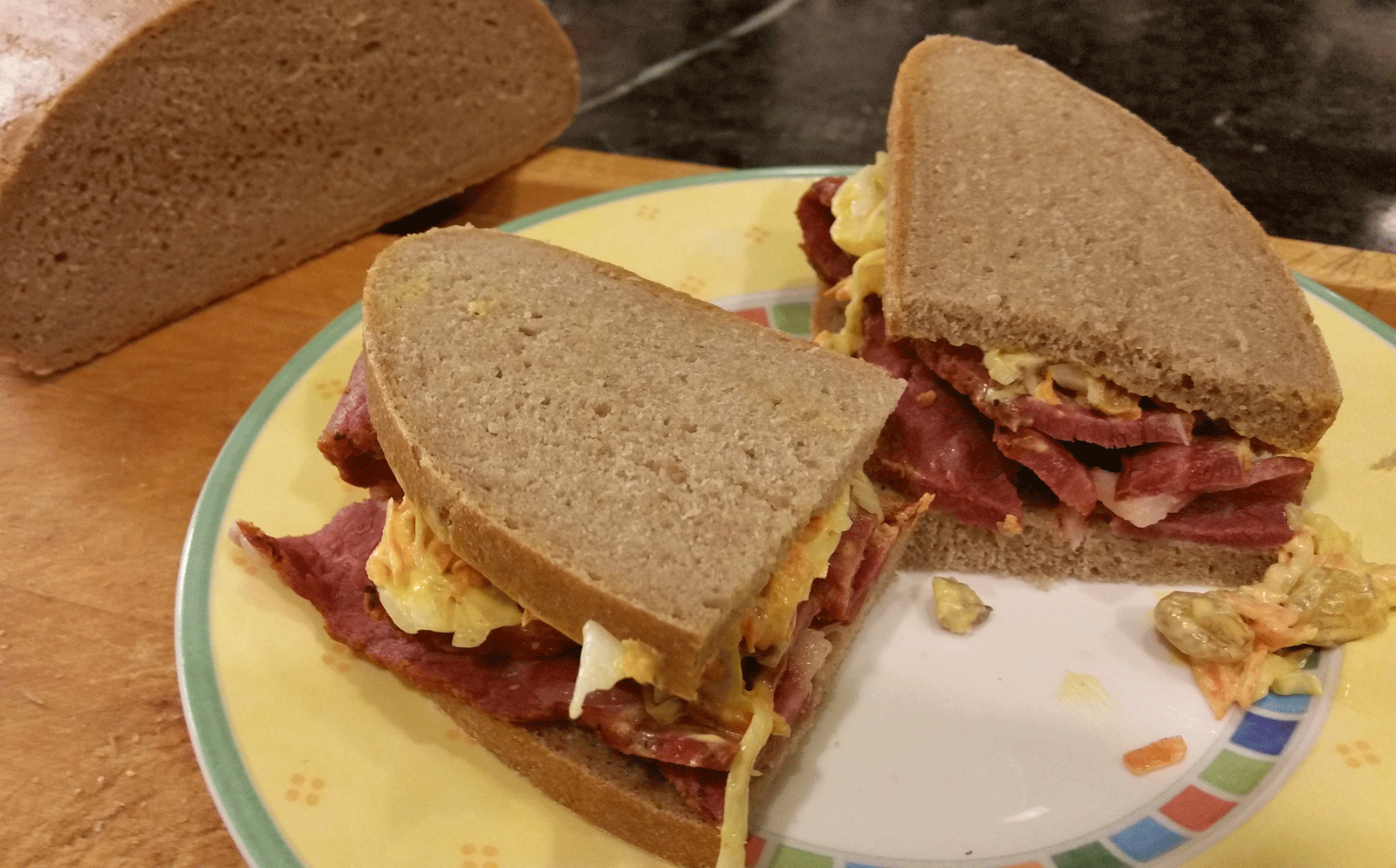| Rye %: | 70% |
| Stages: | Sponge, final dough |
| Leaven: | Rye sour culture, yeast |
| Start to Finish: | 17-20 hours |
| Hands-on Time: | 30-40 minutes |
| Yield: | One dozen 3½ ox/100 g rolls |
Not too long ago, one of my friends, a transplanted Berliner, announced that he and his wife were going on vacation in the mountains of eastern Austria. The news came as music to my ears, because for a long time I’d been trying to get my hands on blue fenugreek leaves, a spice that’s virtually impossible to find in the US. Known as Trigonella caerulea (blue trefoil) to botanists, it’s a key ingredient in the breads of South Tyrol, where it’s variously called Blauklee (“blue clover”), Schabzigerklee (“shoddy clover”), Zigeunerkraut (“gypsy herb”) and Brotklee (“bread clover”). I asked if he’d be kind enough to pick some up for me.

